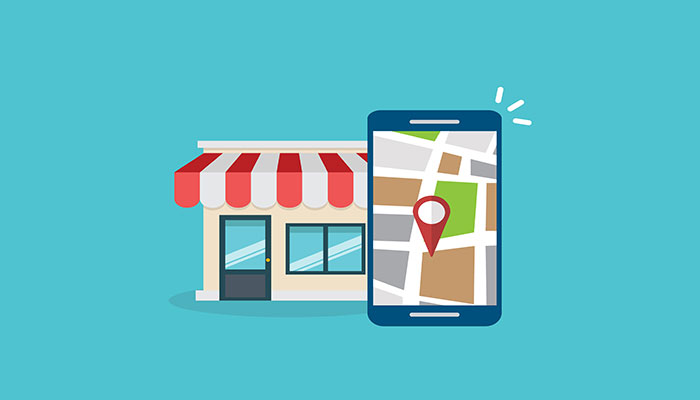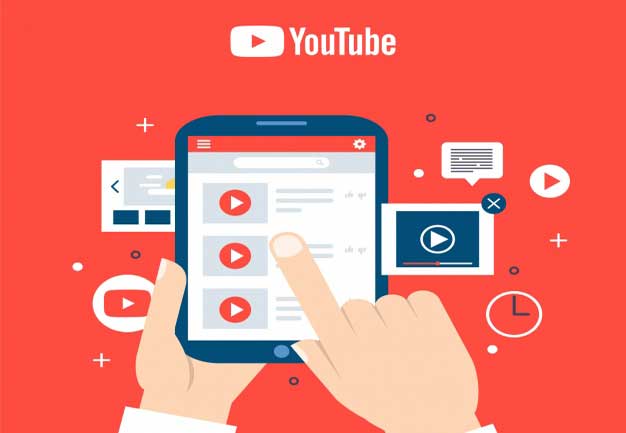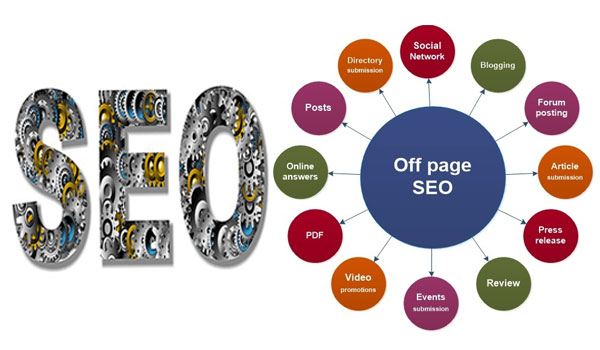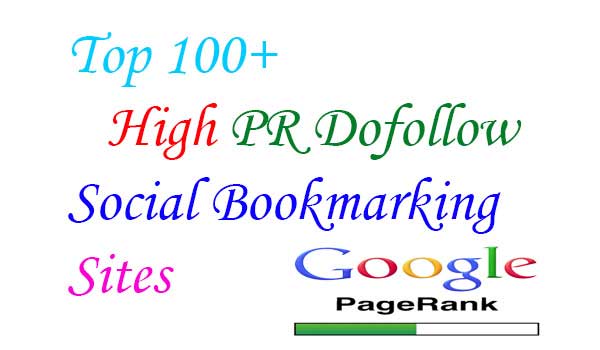Local search is a powerful strategy to grow your business. Did you know that almost half of all Google searches are related to local information? It makes sense—after all, why waste time visiting distant areas if you have everything you need around you?
You could lose plenty of opportunities to generate local sales if you’re not optimized for local searches. So, what should you do? This is where local SEO comes in.
Local SEO (search engine optimization) is a branch of SEO that aims to optimize a website to increase brand awareness and visibility on local searches. This is primarily helpful for businesses with brick-and-mortar shops.
With local SEO, you can drive organic web traffic, increase local shop visits, and position your brand to local prospects looking for them. If you’re wondering how, below is a simple guide to get you started. Read on to learn more.
If you need further assistance, you may consult mws.dev or other similar service providers to boost your local SEO strategies effectively.
Why Is Local SEO Essential For Businesses?
Local SEO is essential because customers use search engines to find products and services near them. In fact, Google indicates that:
- 30% of mobile searches are associated with locations
- 28% of local searches end in a purchase
- 78% of mobile users look for nearby businesses and visit them within the day
These numbers indicate that people are looking for your business. You’re wasting plenty of opportunities to make money if you’re not leveraging local SEO.
How Local SEO Works
Local SEO involves two types of local search results: the map pack and organic results. The good news is that you can rank on both of them. So, what’s the difference between the two?
Also known as ‘the local pack,’ the map pack is a feature where search engines show a list of local businesses and a map that pins their locations. It typically appears at the top of the search engine results pages (SERPs).
On the one hand, organic search results are the normal ‘blue-linked’ results below the map pack. Search engines may show up to 10 blue links depending on what people search.
Unlike the local pack, blue-linked results are the same for every SERP. So, make sure to optimize your site for local organic rankings. Do this by incorporating target keywords in most on-page SEO elements, including title tags, URLs, etc.
What Is Local SEO Keyword Research?
Keyword research is essential to local SEO. It’s similar to how blog keyword research works but a lot easier.
Unlike blogs, you don’t have to look for new sets of keywords at all times. One research is good for long-term use until new updates are released. In short, local SEO keyword research is a one-and-done process.
Here’s how it’s done:
- Look For Service-Based Keywords
When researching for a keyword, it’s important to consider how potential customers search for what you offer. For example, if you’re an electrician, some may look for an ‘electrician’ to find you, while others may search for related services, such as cable wire installation.
Start by creating a list of all the services you offer. This helps improve your visibility on search results. Using an electrician as an example, here’s what a list of services customers may search for:
- Generator installation
- Solar panel installation
- Home solar system installation
- Electrical maintenance
- Control system maintenance
- Wiring repairs
You may use keyword research tools (e.g., Ahrefs, SEMrush, Moz, etc.) to expand your list. Type your keywords as ‘seeds’ and check the report to find more services relevant to your profession.
For example, seeds like solar panel installation and generator installation may yield the following keywords:
- New solar panel installation
- Solar charger installation
- Solar battery installation
If you’re offering these services, you may also consider targeting them. This way, you’ll be more visible to customers searching for businesses like yours.
- Examine Search Volumes
Keyword research tools can help you examine the search volume of a particular keyword to verify if it works. For this step, you may use Google Keyword Planner because it allows you to filter the search volume by state, city, or town. However, it only shows ranges of search volume (e.g., 5K-15K), not specific numbers (e.g., 8.5K). Also, it groups keywords and combines their search volumes. This makes it difficult to assess which one is greater than the other.
In that case, consider checking search volumes at a national scale. This tends to be more efficient because similar searches are more likely to occur in every state. For this step, keyword research tools like Ahrefs and Moz are recommended.
- Check Local Intent
Local intent is apparent in searchers planning to visit a shop nearby and make a purchase. You may skip this step if your business doesn’t offer products and services intended for physical stores.
Type a keyword into Google and analyze the results to verify whether it has local intent. It has local intent if a map pack and organic ‘blue-linked’ search results appear. If there’s none, there’s no local intent in there.
You can still use keywords even if they don’t have local intent, but they don’t offer any opportunity for local SEO.
- Designate Keywords To URLs
Homepages are unlikely to rank, no matter what or how many keywords you use. So, to make these keywords work, you need to place them on separate pages.
To designate keywords to URLs, you need to consider the services they cover. If they refer to different services (e.g., solar panel installation and wiring installation), designate them on separate pages. However, if they belong to the same line (e.g., solar panel installation and solar system installation), designate them on the same page.
Follow the steps above to execute keyword research for local SEO effectively.
What Are The Local SEO Ranking Factors?

Below are the factors that may affect your local SEO rankings—and a few tips to optimize them.
- Google Business Profile
According to Moz, Google Business Profile, formerly Google My Business, is the #1 ranking factor for local SEO.
Yes, it’s not your local business website, but it’s still important to local SEO. Every piece of content you publish and every link pointing to your site is crucial to your map pack rankings. But for your business to land on the first spot, your Google Business Profile has to be optimized.
- NAP Citation
NAP citation refers to the mention of your name, address, and phone number; hence, the name. But what makes it so important?
Google uses NAP citations to verify whether the information you provide is true. You want them to be as visible as possible so that Google can be confident about the accuracy of your information. This is why it’s important to have consistent NAP citations from as many authority sites as possible.
- Online Reviews
Online reviews play a crucial role in local SEO rankings, especially high-quality, positive ones. These reviews help improve business visibility and encourage potential customers to visit your shop or try your services.
Take note of this important caveat: bribing customers in exchange for positive reviews is against Google’s policies. This is to ensure that all reviews posted are authentic and unbiased. If you’ve been found guilty of buying reviews, your local SEO rank will be affected.
In addition, don’t forget to respond to customer reviews to show that your page is active. Also, owner responses help build trust. That’s why your replies are essential.
But what about negative feedback? Should you respond to such reviews as well?
Yes, you have to. Leaving no response after negative feedback may affect your local SEO. But handle negative reviews professionally, even though it’s difficult to take harsh criticism.
For example, ‘We sincerely appreciate your feedback on our electrical services in East Hampton. We value your effort and hope to work with you soonest. Thank you from John & Carlsberg professional plumbing services.’
Furthermore, you don’t have to worry about inappropriate reviews (e.g., curses). All you need to do is report them to Google if you want to have them removed.
- Traditional SEO
Traditional SEO may impact your local SEO. According to Google, your organic SERP ranking may affect your local SEO ranking. So, to be #1 in the map pack, you need to rank as high as possible in the organic results.
This is why producing high-quality content, building backlinks, and optimizing pages are essential to local SEO. This is especially true in highly competitive industries, such as dentistry, medical, legal, etc.
You want to optimize these ranking factors to drive local SEO traffic to your site.
How To Optimize Google Business Profile
Google Business Profile is one of the most important ranking factors for local SEO. That’s why it’s important to optimize yours. But how?’
Here are a couple of helpful tips:
- Be Consistent
Consistency is crucial when it comes to managing Google Business Profile. Every piece of information you provide should match your website, NAP citations, and third-party sites. This encourages Google to give you a better ranking.
However, if your information is inconsistent across different platforms, your local SEO will suffer. Google will have no choice but to lower your ranking. So, if you make any changes (e.g., name, address, or location), make sure it gets updated as soon as possible.
Also, double-check the information you provide and make sure every detail is exactly the same on every platform.
- Keep Business Data Updated
Make sure all basic information is up-to-date and accurate. This includes your holiday schedules, opening hours, and closing hours. Such information may not directly affect the rankings. However, when someone visits your shop only to see it’s closed, expect them to give you negative feedback.
So, make it a habit to update your Google Business Profile for every change you make. For example, if you change your opening hours, proceed to your profile and update your new schedule.
Keep your information consistent and updated across all pages and accounts to optimize your Google Business Profile and, in turn, encourage Google to increase your local SEO rankings.
Tips To Boost Your Local SEO?
Here are some tips that may help improve your local SEO rankings:
- Conduct Local SEO Audits
Once you’ve laid down the foundation of your strategy, you may be tempted to stop and take a break. However, SEO is a continuous, never-ending process. So, instead of taking a pause, consider conducting a thorough audit to check what you need to improve to achieve your goals.
Here’s what a local SEO audit includes:
- Google Business Profile Audit – Is the information you provided consistent and accurate? Do you need to make some updates to your profile?
- Website Audit – How’s the overall performance of your website? Does it lag too often? Does it load too slowly?
- Competitor Analysis – How’s your site compared to your competitors in terms of content, design, and backlinks?
- On-Page SEO Audit – Do you have all the on-page SEO elements you need to help your site rank higher?
Also, remember to use Google Search Console to determine whether your site is crawlable or if there are any errors that prevent proper indexing.
- Optimize Your Internal Linking Strategy
Optimizing your internal links can help improve your SEO rankings. It supports site navigation, distributes authority among pages, and assists with website hierarchy.
Here are some tips to optimize your internal linking strategy:
- Create plenty of content to produce a lot of internal pages.
- Use anchor text with the right keywords.
- Avoid linking to the homepage and Contact Us pages.
- Use links that provide additional value to the reader.
Furthermore, don’t forget to use links relevant to the source context to prevent content overlapping. For example, if your content is about plumbing, you shouldn’t include links related to electricity and other irrelevant topics.
- Make Your Website Mobile Friendly
More than half of all Google searches are done using mobile devices. Most common searches involve reviews, directions, and contact information.
So, help people find your business by making your website mobile-friendly. Here’s how you can go about it:
- Optimize website loading speed—maximum of two seconds.
- Compress images.
- Create a responsive layout.
- Remove pop-ups.
- Use large and readable fonts.
- Change button size and location.
Improving your local SEO is similar to how you work on your traditional SEO. Following the strategies above can encourage Google to boost your local SEO rankings.
Final Thoughts
Local SEO is fundamental to any SEO strategy. This helps local businesses optimize their websites to be more visible to local searches. In addition, your customers can easily find you when they look up online. Hopefully, this article helps you achieve strong brand awareness and authority through local SEO.






























